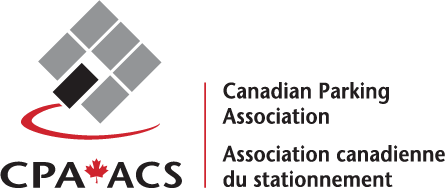CASL: What You Need to Know
By Rachel Levy Sarfin
Canada’s Anti-Spam Legislation (CASL) will come into force on July 1st, 2014. The law has been gaining attention long before it will go into effect, though.
Critics claim it is too broad and overly complicated. Once it comes into force, the law will have an enormous impact on every commercial electronic communication within this country. Robert Burko, president and founder of the marketing firm Elite Email, shared his tips on how to navigate the marketing landscape in the wake of this legislation.
Burko explained that the most important thing to know about CASL is that you must obtain consent from the people with whom you plan to communicate. “Gone are the days of being able to email whoever you want, whenever you want, without caring about whether you have permission to contact that person,” he stated.
Elite Email’s president emphasized that communicators need to obtain consent according to the law’s specifications. Burko added that there are two types of consent: express and implied. “The best type of consent is ‘express consent,’ which is when the person you are emailing has explicitly said ‘Yes, I want to receive your emails,’” he remarked. “The other type of consent is ‘implied consent,’ which is when someone has paid you or entered into a contract with you and a two-year window is created where you can email them.”
Violating CASL will result in hefty penalties. Fines for breaking this law can reach up to $1 million for individuals and up to $10 million for companies. Even non-Canadians can be found guilty of breaking CASL’s rules. The law applies any time someone uses a computer or mobile device in Canada to access a commercial electronic message, which includes emails and text messages. That means that an American business can be liable for penalties if a Canadian subscribes to its newsletters. “From the perspective of organizations trying to comply with CASL, they need to completely audit all of their existing databases, and all of their workflows that inject new data, to make sure it follows the new rule book,” Burko commented.
Burko believes there will be challenges to enforcing many aspects of CASL. “There is a chance this entire piece of legislation will be deemed to violate the Canadian Charter of Rights and Freedoms that protects free speech, and then enforcement will be impossible,” he noted. “It’s a tricky situation since a judge has to balance commercial free speech against the right to consumer privacy. This is a complex issue because a judge could claim that CASL imposes reasonable limitations, which keeps it valid, but if it goes too far then it infringes on the Charter. Industry Canada believes that CASL is consistent with the Charter, but that remains to be seen.”
Aside from the legal issues, Burko speculated as to whether Canadian judges would actually impose the fines on violators. “From a penalty point of view, many people believe that a $1 million fine for individuals and a $10 million fine for organizations is far too steep for a CASL violation,” he remarked. “The penalty simply does not fit the crime and is way out of proportion. So, even if CASL is deemed to be constitutional, we will have to see how judges impose penalties to evaluate the true severity of a CASL violation.”
Can we expect to see many court cases as a result of these violations? “Realistically, I think you’re going to see big businesses all abide by the legislation out of the gates,” Burko commented. “After all, if you have in-house counsel, they should definitely be making sure everything is in order. But, I think many smaller businesses are adopting a wait-and-see approach.” He warned against this method: “I don’t think that is the right course of action because we know this law is going live, but I suspect many small businesses are looking at all the work they’ll have to do and choosing to put it off until it becomes an absolute necessity.”
Elite Email has published The CASL Survival Guide, which explains what businesses need to do to abide by this law. “The digital communication landscape in Canada is changing dramatically and every organization needs to realize this affects them in a big way,” Burko warned. “Becoming CASL compliant will take some effort, and with the clock ticking, the time to start preparing is now.”



